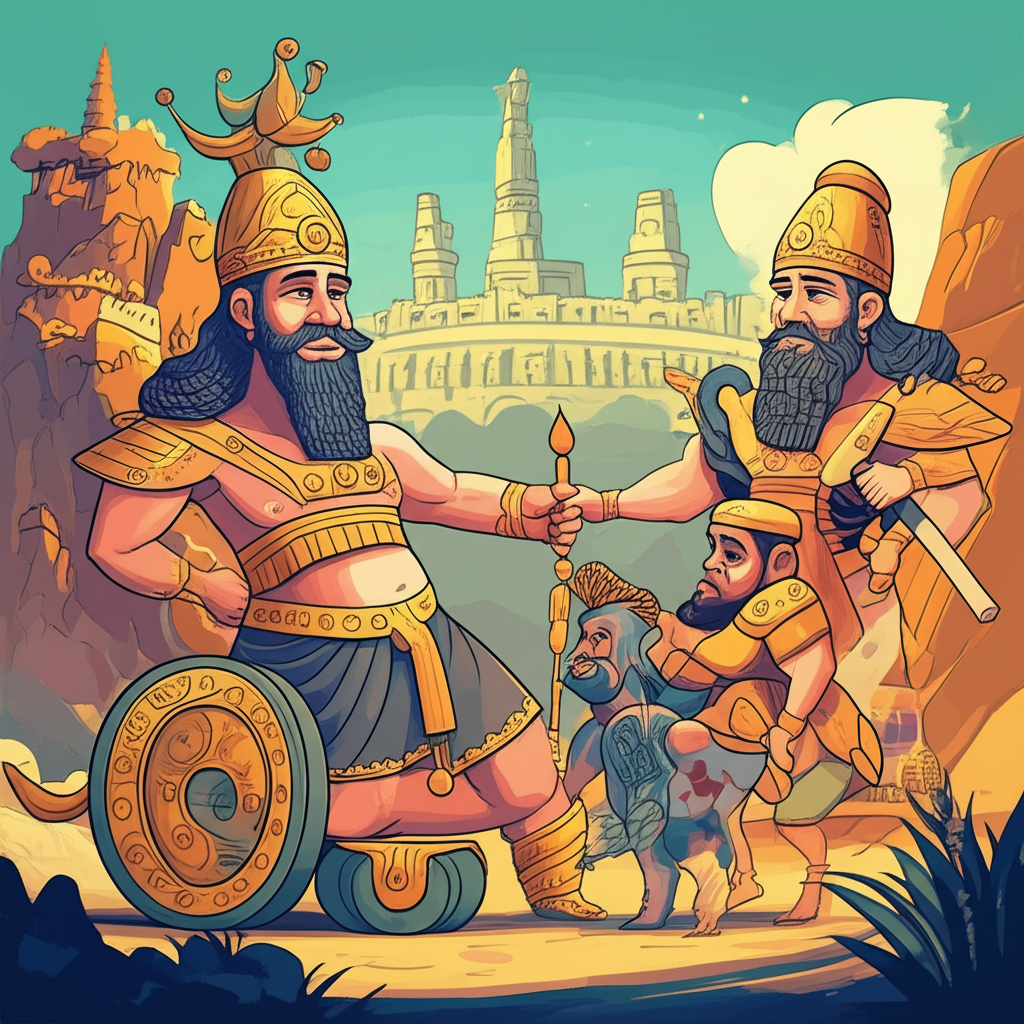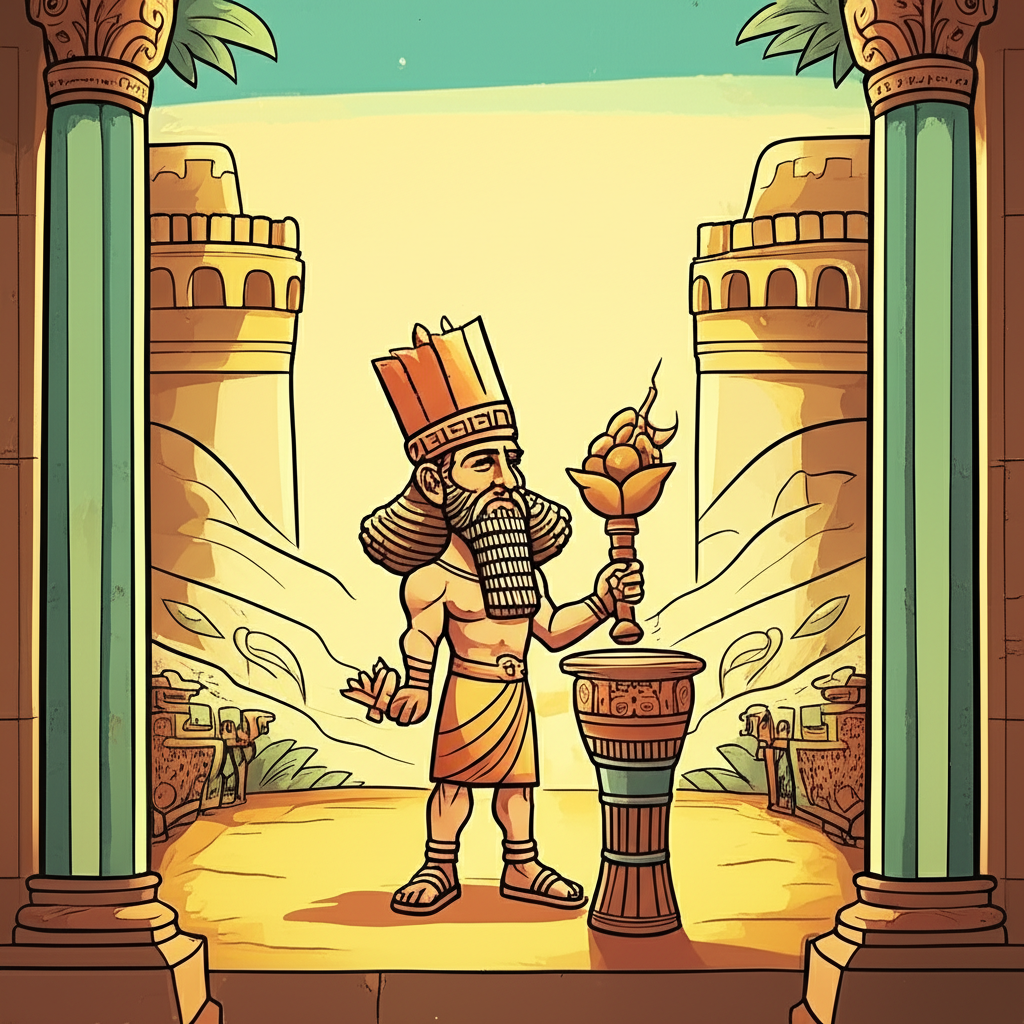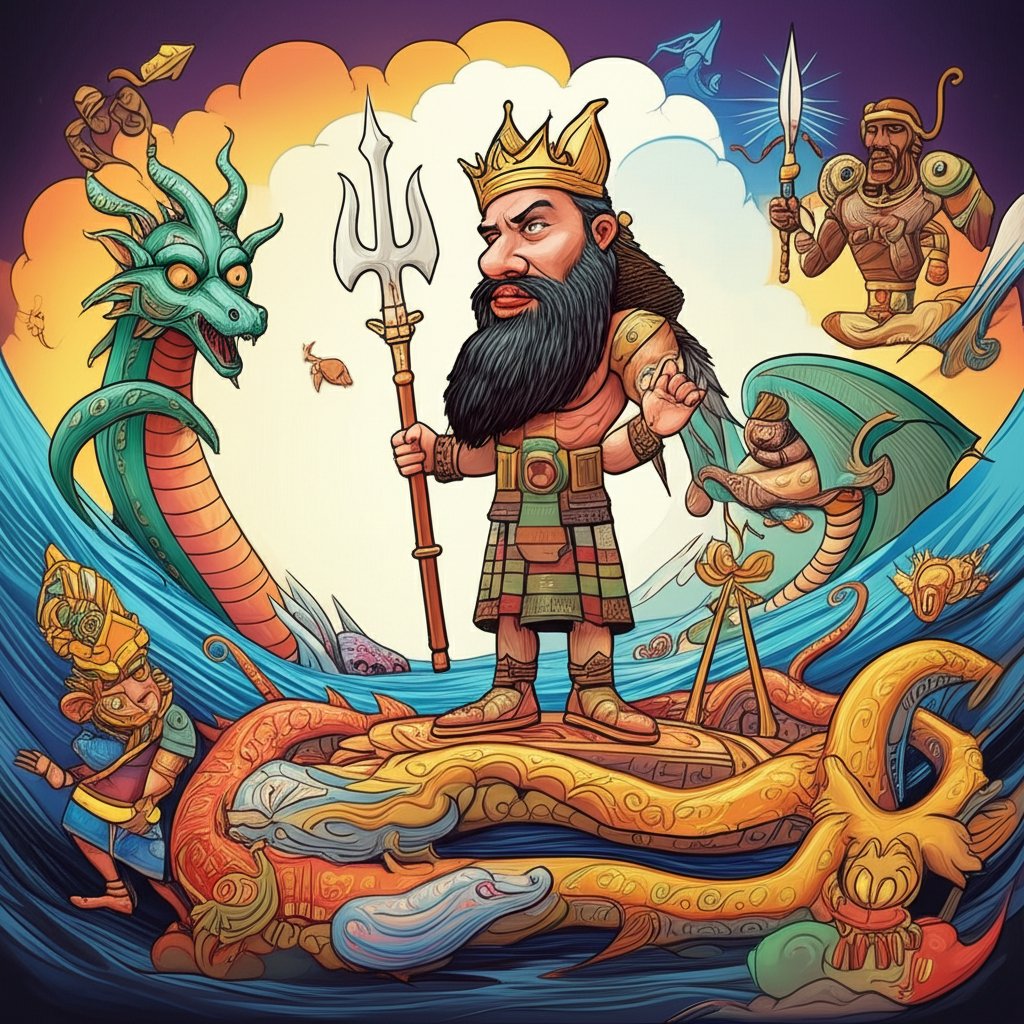
In the dusty plains of Mesopotamia, where the mighty Tigris and Euphrates rivers carved their paths through fertile lands, ancient peoples wove tales that echoed through millennia. Among these, none resonate with the enduring power of the Epic of Gilgamesh. This is not a chronicle of historical fact, nor a divine revelation, but a collection of deeply human stories, passed down through generations by the peoples of ancient Sumer and Babylon, offering a window into their worldview, their hopes, and their profound anxieties. These were the songs sung by a civilization grappling with the mysteries of existence, long before the advent of modern science or the revelations of faith.
The cultural tapestry from which the Epic of Gilgamesh emerged was one of burgeoning city-states, monumental architecture, and a complex, polytheistic spiritual landscape. In the sprawling cities like Uruk, life was dictated by the rhythms of agriculture, the challenges of warfare, and the ever-present power of perceived deities. For these ancient Mesopotamians, the world was a place of both wonder and peril. They believed that the heavens and the earth were governed by a pantheon of gods and goddesses, whose whims and desires shaped the destinies of mortals. The cosmos was not a predictable machine, but a stage for divine drama, where floods could be unleashed, plagues sent, and the very fabric of life manipulated by these powerful beings. Their understanding of the world was imbued with a deep sense of the ephemeral nature of human life, the inevitability of death, and the yearning for something beyond mortal limitations. It is within this context of awe, fear, and a profound engagement with the natural world that the story of Gilgamesh took root.
At the heart of this epic lies Gilgamesh, the formidable king of Uruk. He is depicted as a being of immense strength and stature, two-thirds divine and one-third human. This dual nature is not a claim of literal divinity, but a symbolic representation of his extraordinary capabilities and his inherent struggle with his mortal half. His divine heritage grants him unparalleled power, physical prowess, and a regal bearing that sets him apart. However, it is his human element that fuels his journey, his capacity for deep emotion, his fear of mortality, and his eventual quest for meaning. He is a figure who embodies the aspirations and the limitations of humanity itself. Alongside him stands Enkidu, a wild man created by the gods to challenge Gilgamesh. Enkidu, initially living amongst animals, represents the untamed forces of nature, the primal instincts that lie dormant within even the most civilized beings. His symbolic journey from the wild to the city mirrors humanity’s own progression and his eventual adoption of human ways underscores the transformative power of companionship and shared experience.
The narrative of Gilgamesh unfolds as a dramatic saga of friendship, loss, and the search for eternal life. Gilgamesh, initially a proud and tyrannical ruler, is a force of nature, his power unchecked. The gods, observing his arrogance, send forth Enkidu to humble him. Their legendary battle is not a clash of mere mortals, but a tempestuous display of strength that ultimately results in mutual respect and an unbreakable bond of friendship. Together, Gilgamesh and Enkidu embark on heroic adventures, slaying monsters like Humbaba, the terrifying guardian of the Cedar Forest, and the Bull of Heaven, a creature sent to punish Gilgamesh for his rejection of the goddess Ishtar. These encounters are not merely tales of valor, but allegories of humanity’s struggle against the wild, the unknown, and the forces that threaten order and civilization.
The turning point in the epic arrives with the death of Enkidu. This profound loss shatters Gilgamesh. The stark reality of his friend’s mortality, a fate he had never truly confronted, sends him spiraling into despair and an obsessive fear of his own end. He embarks on a desperate quest for immortality, seeking out Utnapishtim, the only mortal to have achieved eternal life, blessed by the gods after surviving a great flood. Gilgamesh’s arduous journey across vast deserts and treacherous seas, his encounters with wise figures and fearsome guardians, all represent the universal human struggle against the inevitability of death. He learns that immortality, in the way he seeks it, is beyond his grasp, a divine prerogative.
The symbolism woven into the Epic of Gilgamesh is rich and multifaceted. Gilgamesh himself can be seen as representing the duality of human nature – the yearning for greatness and the inescapable reality of mortality. His friendship with Enkidu symbolizes the importance of companionship and the way shared experiences can temper even the wildest spirit. The monsters they face can be interpreted as personifications of the fears and challenges that ancient peoples confronted, from the untamed wilderness to the chaos of natural disasters. The quest for immortality speaks to a fundamental human desire to transcend the limitations of life, to leave a lasting legacy, and to escape the oblivion of death. The great flood, a prominent theme, echoes a widespread ancient understanding of cataclysmic events and the potential for divine judgment or intervention.
In the modern world, the Epic of Gilgamesh continues to captivate and inspire. It is studied in literature and history classes as one of the earliest surviving works of epic poetry, offering invaluable insights into ancient Mesopotamian culture, religion, and social structures. Its themes of friendship, loss, the search for meaning, and the human condition remain profoundly relevant, resonating in contemporary novels, films, and even video games, where its archetypal characters and epic journeys are reinterpreted for new audiences. Scholars continue to analyze its complex narratives, seeking to understand the human psyche and the evolution of storytelling traditions.
In conclusion, the Epic of Gilgamesh is a testament to the enduring power of human imagination and the rich tapestry of cultural heritage. It is a story told by ancient peoples, a reflection of their understanding of the world, their struggles, and their aspirations. As Muslims, we recognize that all creation, including the tales of ancient civilizations, originates from Allah, the one true Creator and Sustainer. The stories of Gilgamesh, while fascinating and culturally significant, are not to be believed as factual or divine. Instead, we acknowledge them as echoes of human experience, passed down through the ages, reminding us of the universal threads of our shared humanity and the profound human drive to understand our place in the vast expanse of existence. The songs of Babylon, carried on the winds of time, continue to remind us of the timeless art of storytelling and the enduring legacy of human thought.




